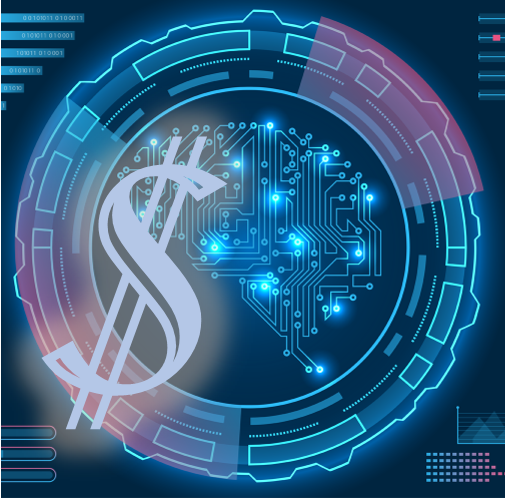Nearly half (48.5%) of executives surveyed by Narrative Science indicate that “automated communications that give business audiences data they can use to make effective business decisions” is one of the primary reasons they use artificial intelligence (AI) in their business.[1] The fact that artificial intelligence is used to enhance decision making should come as no surprise. Bain analysts, Michael C. Mankins and Lori Sherer (@lorisherer) note, decision making is one of the most important aspects of any business. “The best way to understand any company’s operations,” they write, “is to view them as a series of decisions.”[2] They elaborate:
“People in organizations make thousands of decisions every day. The decisions range from big, one-off strategic choices (such as where to locate the next multibillion-dollar plant) to everyday frontline decisions that add up to a lot of value over time (such as whether to suggest another purchase to a customer). In between those extremes are all the decisions that marketers, finance people, operations specialists and so on must make as they carry out their jobs week in and week out. We know from extensive research that decisions matter — a lot. Companies that make better decisions, make them faster and execute them more effectively than rivals nearly always turn in better financial performance. Not surprisingly, companies that employ advanced analytics to improve decision making and execution have the results to show for it.”
The Narrative Science survey also found that “57.9% of businesses with big data tech have AI solutions deployed.” Once again this comes as no surprise. There is a symbiotic relationship between data and artificial intelligence. AI needs data (lots of it) from which to learn and massive amounts of data need artificial intelligence to analyze it. Citing the Narrative Science survey, Gil Press (@GilPress), Managing Partner at gPress, notes, “38% of enterprises are already using AI technologies and 62% will use AI technologies by 2018.”[3] Press reminds readers that the term “artificial intelligence” covers a wide range of technologies. “Keep in mind,” he writes, “that ‘AI technologies’ is a broad term that includes machine and deep learning, recommendation engines, predictive and prescriptive analytics, automated written reporting and communications, and voice recognition and response.” One of the technologies falling under the artificial intelligence umbrella is cognitive computing. Many analysts predict that cognitive computing is going to be the centerpiece of future businesses. For example, Kevin Kelly (@kevin2kelly), founding Executive Editor of Wired magazine, bluntly tweeted, “In the very near future you will cognify everything in your life that is already electrified.” Although cognitive computing may sound like some kind of artificial general intelligence (i.e., a sentient system that demonstrates volition), it’s not. Cognitive computing falls into the category of narrow or lite artificial intelligence. Seth Earley (@sethearley), founder and CEO of Earley Information Science, notes, “The latest advances — known variously as cognitive computing, machine learning, and deep learning — sound complicated and expensive. And they are, despite the enormous potential they bring to the marketplace.”[4] He argues, however, that their complexity and cost should not be a deterrent. He explains:
“The good news is that the early dividends from AI are already within reach of most midsize companies as they look for ways to expand their digital boundaries. In fact, the building blocks of AI can produce great results with fewer technical requirements and less time and money than many companies realize. What’s more, those that take this initial step are getting a leg up on AI’s future, since that step is going to be a prerequisite for everything that follows. … At the high end of artificial intelligence are systems like cognitive computing that are allowing driverless cars and other machines to develop the capacity to learn from their experiences in the world — by incorporating nuances, remembering outcomes, and adapting to mistakes. … At the less-expensive end is a knowledge-based approach that organizes data and language into highly malleable and helpful blocks of information. These ‘AI Lite’ systems don’t learn new tricks — unless their human minders use new code instructions to ‘teach’ them. But they can become very smart indeed about sorting and distributing their information in extremely fast ways. … Even in this new information age, not everything requires the razzle-dazzle of AI. But companies and government agencies are starting to find plenty of places where knowledge-based tools can make a huge difference. These include improving data-mining operations, helping with training, and making structured, repeatable tasks and processes far more efficient and less costly.”
If you are still sitting on the fence trying to decide whether artificial intelligence will be useful in your business, you should get off the fence and ask, “How can I best use AI in my business.” Oliver Pickup writes, “Computer intelligence will overturn everything from medicine to the stock market and the revolution is only just beginning.”[5] He adds, “It is vital for business leaders to engage with AI. They must realize its vast untapped potential and take charge in shaping the present and the future.” He’s not alone is that assessment. Jonathan Moran (@jmmoran12), a senior product marketing manager for SAS Customer Intelligence Solutions, notes, “Cognitive computing is the most widely used category of artificial intelligence in the workplace today. Businesses look to cognitive computing to handle complex, ambiguous situations and enable more ‘human-like’ interactions with software. These self-learning systems simulate human thought processes through data mining, intelligence automation and natural language processing. Cognitive computing is used across industries to deliver a better customer experience.”[6] Because cognitive computing has such widespread application, an Economic Times article states, “Radical advances in artificial intelligence, along with greater processing power, are pushing cognitive computing and deep learning into the mainstream, and it definitely makes the case for it to be brought into play.”[7] Bob Violino (@BobViolino) notes that an International Data Corp (IDC) study concluded, “Cognitive computing is one of six ‘innovative accelerators’ that will drive digital transformation by opening new revenue streams, creating information-based organizations, and changing the way work is performed.”[8] And Accenture analysts conclude cognitive computing will provide the “ultimate long-term solution” for many business challenges.[9]
Footnotes
[1] Infographic, “Artificial Intelligence is not Killing Jobs,” Narrative Science, 2016.
[2] Michael C. Mankins and Lori Sherer, “Creating value through advanced analytics,” Bain Brief, 11 February 2015.
[3] Gil Press, “Artificial Intelligence Rapidly Adopted By Enterprises, Survey Says,” Forbes, 20 July 2016.
[4] Seth Earley, “How Companies Are Benefiting from ‘Lite’ Artificial Intelligence,” Harvard Business Review, 19 July 2016.
[5] Oliver Pickup, “How artificial intelligence will transform your business,” The Telegraph, 12 July 2016.
[6] Jonathan Moran, “How AI is Reshaping the Business World,” CMS Wire, 12 May 2016.
[7] IBM, “How Cognitive Computing will Redefine Enterprise Business,” Economic Times, 5 April 2016.
[8] Bob Violino, “Spending On Cognitive Computing to Top $31 Billion By 2019,”Information Management, 15 March 2016.
[9] “From Digitally Disrupted to Digital Disrupter,” Accenture, 2014.





